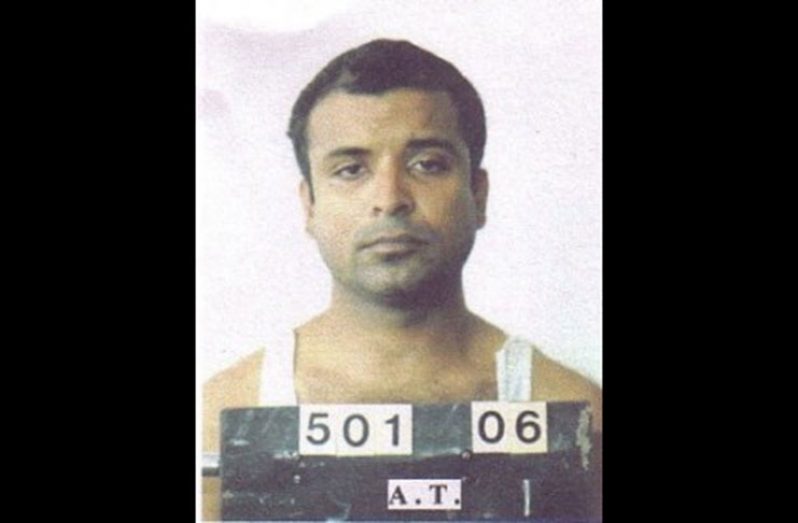CONVICTED drug lord, Shaheed “Roger” Khan, said the U.S. Bureau of Prison’s contention that the First Step Act of 2018 will take effect on until July 25, 2019 is “erroneous” as he makes a bid to score some ‘good time’ credits for an early release.
On March 13, 2019, Khan filed an “Emergency Petition for a Writ of Habeas Corpus” pursuant to Title 28, United States Code. In his petition, Khan is challenging the Bureau of Prison’s failure to properly calculate and award his good-conduct credit.
In objecting to an early release, the Bureau has maintained that the change will not go into effect until July 25, 2019 based upon the provision within section 102(b) of the First Step Act that holds the “effective date” to “take effect beginning on the date that the Attorney General completes and releases the risk and needs assessment system.” The bureau pointed out that the attorney general was granted 2l0 days to complete the “risk and needs assessment” system. Based on this understanding, it maintained that the good-time fix will not go into effect until July 25, 2019.
Khan, in his rebuttal, said the contentions of the bureau are erroneous.
Representing himself in the case he brought against Warden Bryan Dobbs, Khan, on May 1, told the United States District Court of the Southern District of Florida that there is a clear difference between time earned and the good time.
“In point of fact, the attorney general’s directive to complete a ‘risk and needs assessment’ system is independent of, and separate from, the good-time fix. It was meant to be applied solely toward the separate “earned-time” credits, which has nothing to do with the “good-time” fix. The only part of the law that was supposed to have a delayed implementation was the first (earned-time); the other part of the law (good-time) was, by Congressional intent, to have immediate application,” Khan told the court in his submissions.
According to the convicted criminal, the cases cited by the Bureau of Prison are not precedent, noting that they go against the Eleventh Circuit’s directive to give effect to Congressional intent.
He maintained that Congressional intent in the matter is clear that the two provisions (earned-time vs good-time) were to be two separate considerations independent of each other.
“Both provisions were only included under the same section 102 of the bill because they had to pigeonhole the new earned-time provision somewhere in the statutes, and now the respondent is trying to purposefully miscommingle the two provisions as one, based solely on the bill’s set-up without consideration of the intent behind each provision,” he posited.
Khan is scheduled to be released from federal prison on July 8, 2019 but whether he is released earlier or not, he will be deported to Guyana, where he will be investigated for crimes committed locally.
Khan, a drug lord, was not only fingered in the trafficking of narcotics, but also in gun smuggling, murders and extra-judicial killings. Minister of Public Security, Khemraj Ramjattan, said that Khan is not deserving of a reduced sentence.
President David Granger has referred to the Roger Khan-era as the “Troubles”; a period presided over by the Bharrat Jagdeo administration. The President said it was the “darkest hour” that was characterised by drug-driven chaos and bloodshed. Jagdeo was President of Guyana from August 11, 1999 to December 3, 2011, during which there were three massacres: Lusignan, where 11 people were killed; Bartica, where another 12 were killed, and Lindo Creek, where seven miners were slaughtered. Besides, there were countless extra-judicial killings – with some activists estimating that around 400 Afro Guyanese males were gunned down.
Back in 2003-2006, Khan had set up a criminal network here including active policemen and a number of former ranks, ostensibly to go after criminals, but at the same time, protecting his narco-trafficking interests. Although the People’s Progressive Party (PPP) government had sought to distance itself from Khan, the drug-trafficker had stated publicly, in an advertisement in local newspapers, that he had been fighting crime on behalf of the Bharrat Jagdeo-led government. Khan had also implicated former Minister of Health, Dr. Leslie Ramsammy, in his escapades, and documents bearing the then minister’s signature authorising the purchase of a sophisticated wire-tapping device, were produced in the U.S. courts during Khan’s trial.
But in recent times, Jagdeo, now opposition leader, has been washing his hands clean of the crimes committed by Khan, contending that his government had nothing to do with the drug lord. “The PPP had absolutely nothing to do with Roger Khan,” he once declared. Jagdeo said once there is supporting evidence, the State should take the necessary steps to bring Khan to justice.
Although evidence submitted in a U.S. court had linked his minister, Dr. Leslie Ramsammy to Khan, the opposition leader has denied any connection, saying: “That has never been proven with official testimony. That has never been proven. Leslie Ramsammy said he never did.”
Khan was captured in Suriname on June 15, 2006, while fleeing local police and was later handed over to U.S. authorities. He was linked to Colombian ‘narco’ traffickers, terrorism, murders and other high-profile cases.




.jpg)










